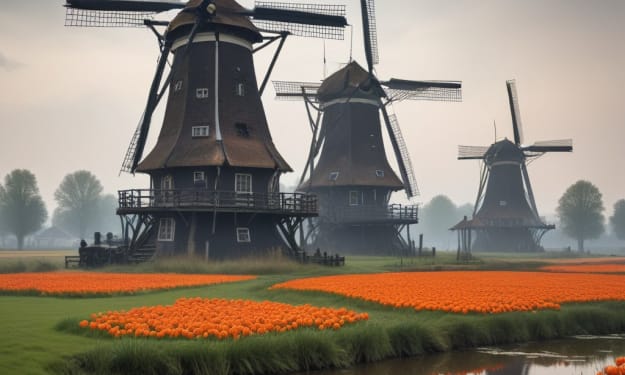Title: "The Rise and Fall of Pablo Escobar: A Kingpin's Legacy"
"Exploring the life, empire, and enduring impact of the world’s most infamous drug lord."
Pablo Emilio Escobar Gaviria, born on December 1, 1949, in Rionegro, Colombia, and raised in Medellín, was a name that would become synonymous with the global cocaine trade. His life, full of ambition, violence, and contradiction, made him the wealthiest and most feared drug lord in the world.
Escobar’s beginnings were humble. His father was a farmer and his mother a schoolteacher. The young Escobar started his criminal life in the streets of Medellín, engaging in petty theft and selling contraband cigarettes. It was not long before he discovered that dealing in illegal goods could be far more lucrative. He moved into the business of stealing and reselling gravestones and eventually transitioned into selling fake lottery tickets and contraband smuggled goods. By the early 1970s, Escobar had entered the world of drug smuggling, starting with marijuana before recognizing the immense potential of cocaine.
In 1976, Escobar founded the Medellín Cartel. The cartel’s strategy was simple: mass-produce high-quality cocaine in Colombia and transport it in bulk to the US, where demand was soaring. By the 1980s, it is estimated that the Medellín Cartel controlled more than 80% of the cocaine sent to the United States. This monopoly made Escobar immensely wealthy; at the height of his power, his cartel was making $70 million a day. This wealth bought Escobar properties, luxury cars, airplanes, and, most famously, the Hacienda Nápoles estate with its private zoo.
Pablo Escobar’s influence extended beyond his economic power. He became known for his Robin Hood image in Medellín. Escobar funded numerous projects to aid the poor communities, including building houses and soccer fields. This garnered him significant local support, enough that he was elected as an alternate member of Colombia’s Congress in 1982. However, his political career was short-lived. The exposure brought intense scrutiny from the Colombian government and the United States, leading to his resignation.
Despite his popularity among some Colombians, Escobar’s cartel was ruthless. The organization was responsible for countless murders of police officers, government officials, and civilians. One of the most infamous acts of violence was the bombing of Avianca Flight 203 in 1989, an attempt to kill a presidential candidate who was not on board, which resulted in 110 deaths. Escobar’s cartel was also involved in the bloody conflict known as "La Violencia," during which thousands of people were killed in the power struggles between the Medellín Cartel and its rivals.
The violence and corruption linked to Escobar and his cartel led to ever-increasing efforts by the Colombian and U.S. governments to bring him down. The U.S. particularly pushed for his extradition, fearing that corrupt elements within Colombia might prevent justice from being properly served. In response, Escobar waged a brutal campaign against the Colombian government, culminating in the assassination of presidential candidates and bombings throughout Colombia.
Escobar’s downfall began in the early 1990s. In 1991, facing mounting pressure, he surrendered to Colombian authorities under a negotiated agreement that he would not be extradited to the U.S. and could build his own prison, La Catedral, which was more akin to a luxury resort than a jail. However, the Colombian government decided to move him to a more standard prison in 1992, after discovering that he continued to run his drug empire from La Catedral. Escobar escaped and spent the next 16 months on the run.
On December 2, 1993, Pablo Escobar’s life came to an end. After a 16-month manhunt, he was shot and killed by the Colombian National Police in his hometown of Medellín. His death marked the beginning of the decline of the Medellín Cartel, which fragmented into smaller groups.
Pablo Escobar's legacy is a complex one. While some remember him for his charitable efforts and view him as a folk hero, others see him as a murderer and a drug lord who brought untold violence and suffering to Colombia. His life story has been the subject of numerous books, documentaries, and a successful television series, "Narcos," reflecting the enduring fascination and horror at the empire he built and the violence he propagated.






Comments
There are no comments for this story
Be the first to respond and start the conversation.